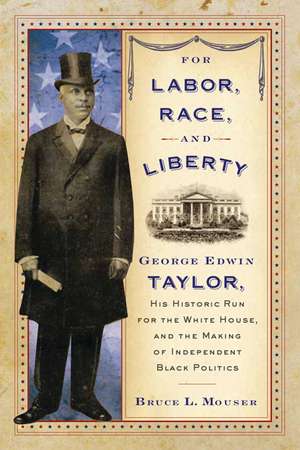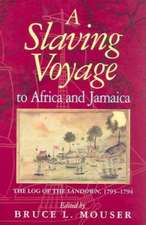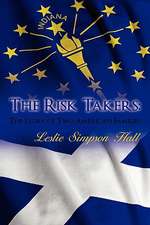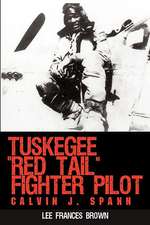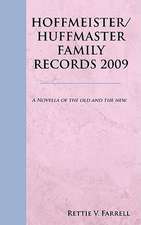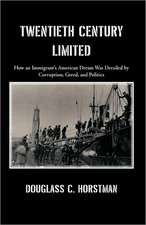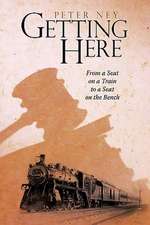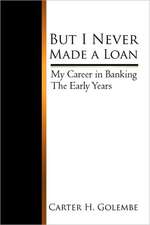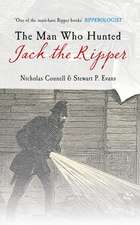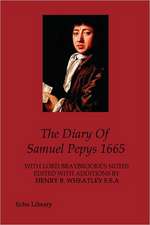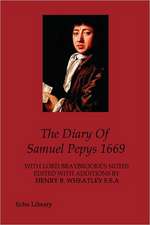For Labor, Race, and Liberty: George Edwin Taylor, His Historic Run for the White House, and the Making of Independent Black Politics
Autor Bruce L. Mouseren Limba Engleză Paperback – 20 ian 2011
Vezi toate premiile Carte premiată
More than one hundred years before Barack Obama, George Edwin Taylor made presidential history. Born in the antebellum South to a slave and a freed woman, Taylor became the first African American ticketed as a political party’s nominee for president of the United States, running against Theodore Roosevelt in 1904.
Orphaned as a child at the peak of the Civil War, Taylor spent several years homeless before boarding a Mississippi riverboat that dropped him in La Crosse, Wisconsin. Taken in by an African American farm family, Taylor attended a private school and eventually rose to prominence as the owner/editor of a labor newspaper and as a vocal leader in Wisconsin’s People’s Party. At a time when many African Americans felt allegiance to the Republican Party for its support of abolition, Taylor’s sympathy with the labor cause drew him first to the national Democratic Party and then to an African American party, the newly formed National Liberty Party, which in 1904 named him its presidential candidate. Bruce L. Mouser follows Taylor’s life and career in Arkansas, Illinois, Wisconsin, Iowa, and Florida, giving life to a figure representing a generation of African American idealists whose initial post-slavery belief in political and social equality in America gave way to the despair of the Jim Crow decades that followed.
Best Books for Special Interests, selected by the American Association for School Libraries
Best Books for Professional Use, selected by the American Association for School Libraries
Best Books for General Audiences, selected by the Public Library Association
Second Place, Biography, Society of Midland Authors
Honorable Mention, Benjamin F. Shambough Award, the State Historical Society of Iowa
Orphaned as a child at the peak of the Civil War, Taylor spent several years homeless before boarding a Mississippi riverboat that dropped him in La Crosse, Wisconsin. Taken in by an African American farm family, Taylor attended a private school and eventually rose to prominence as the owner/editor of a labor newspaper and as a vocal leader in Wisconsin’s People’s Party. At a time when many African Americans felt allegiance to the Republican Party for its support of abolition, Taylor’s sympathy with the labor cause drew him first to the national Democratic Party and then to an African American party, the newly formed National Liberty Party, which in 1904 named him its presidential candidate. Bruce L. Mouser follows Taylor’s life and career in Arkansas, Illinois, Wisconsin, Iowa, and Florida, giving life to a figure representing a generation of African American idealists whose initial post-slavery belief in political and social equality in America gave way to the despair of the Jim Crow decades that followed.
Best Books for Special Interests, selected by the American Association for School Libraries
Best Books for Professional Use, selected by the American Association for School Libraries
Best Books for General Audiences, selected by the Public Library Association
Second Place, Biography, Society of Midland Authors
Honorable Mention, Benjamin F. Shambough Award, the State Historical Society of Iowa
Preț: 142.93 lei
Nou
Puncte Express: 214
Preț estimativ în valută:
27.35€ • 28.55$ • 22.64£
27.35€ • 28.55$ • 22.64£
Carte disponibilă
Livrare economică 14-28 martie
Preluare comenzi: 021 569.72.76
Specificații
ISBN-13: 9780299249144
ISBN-10: 029924914X
Pagini: 278
Ilustrații: 13 b-w illus.
Dimensiuni: 152 x 229 x 20 mm
Greutate: 0.37 kg
Ediția:1
Editura: University of Wisconsin Press
Colecția University of Wisconsin Press
ISBN-10: 029924914X
Pagini: 278
Ilustrații: 13 b-w illus.
Dimensiuni: 152 x 229 x 20 mm
Greutate: 0.37 kg
Ediția:1
Editura: University of Wisconsin Press
Colecția University of Wisconsin Press
Recenzii
“The best piece of historical detective work I have seen since John Hope Franklin’s work on George Washington Williams. At every turn it brings new findings and insights about the political experiences of African Americans. Superb and pioneering work.”—Hanes Walton Jr., author of American Politics and the African American Quest for Universal Freedom
“A generation before A. Philip Randolph, Adam Clayton Powell Jr., and Ella Baker, there was George Edwin Taylor. Rich in detail, this compelling story sheds light on black labor struggles in the Upper Midwest and brings to life an American civil rights hero and pioneer of independent black politics at the turn of the twentieth century.”—Omar H. Ali, author of In the Balance of Power: Independent Black Politics and Third Party Movements in the United States
“An excellent biography of a forgotten but important leader.” —The Annals of Iowa
“Mouser’s biography is a triumph of detective work conducted over many years. . . . [T]hanks to Mouser’s quoting of many of Taylor’s editorials and political platforms in full, we do get a chance to ponder his political statements in detail and thus get a glimpse into a world of northern black politics that has so often been neglected.”—Stephen Tuck, Presidential Studies Quarterly
Notă biografică
Bruce L. Mouser is professor emeritus of history at the University of Wisconsin–La Crosse.
Cuprins
Charts & Maps, Pictures, Acronysm
Acknowledgements
Preface
Chapter 1: Prologue
Chapter 2: From Orphaned Black to Printer's Devil: Taylor's Early Years in God's Country
Chapter 3: Labor Agitator, Newspaper Editor, and Political Novice: Schools of Hard Knocks
Chapter 4: Emergence of a Black Activist: Joining the African-American World and Succeeding
Chapter 5: Taylor: The National Democrat
Chapter 6: " A Duty to His Race": Taylor and His Campaign to Become President
Chapter 7: Escape to a Warm Place
Chapter 8: Conclusion
Chapter 9: Author's Reflections
Appendices:
A. Taylor interview with The Sun after the 1904 election
B. "Speech of Mr. W. L. Smith before the Convention of the Liberty Party at Douglass Hall"
C. "President Mitchell Blackmailed"
D. Letter from James Ross to George Taylor, 9 August 1904
E. "National Appeal to the American Negro—Why we should favor the Chicago Platform:
F. "Woman's Work." Address and communications for this department by Cora E. Taylor, Editor, Solicitor Office, Oskaloosa, Iowa
G. "Letter of acceptance made public today by Hon. George E. Taylor"
H. Election data for 1904 presidental election
I. Chart of George Edwin Taylor's life course
Bibliography
Endnotes
Index
Acknowledgements
Preface
Chapter 1: Prologue
Chapter 2: From Orphaned Black to Printer's Devil: Taylor's Early Years in God's Country
Chapter 3: Labor Agitator, Newspaper Editor, and Political Novice: Schools of Hard Knocks
Chapter 4: Emergence of a Black Activist: Joining the African-American World and Succeeding
Chapter 5: Taylor: The National Democrat
Chapter 6: " A Duty to His Race": Taylor and His Campaign to Become President
Chapter 7: Escape to a Warm Place
Chapter 8: Conclusion
Chapter 9: Author's Reflections
Appendices:
A. Taylor interview with The Sun after the 1904 election
B. "Speech of Mr. W. L. Smith before the Convention of the Liberty Party at Douglass Hall"
C. "President Mitchell Blackmailed"
D. Letter from James Ross to George Taylor, 9 August 1904
E. "National Appeal to the American Negro—Why we should favor the Chicago Platform:
F. "Woman's Work." Address and communications for this department by Cora E. Taylor, Editor, Solicitor Office, Oskaloosa, Iowa
G. "Letter of acceptance made public today by Hon. George E. Taylor"
H. Election data for 1904 presidental election
I. Chart of George Edwin Taylor's life course
Bibliography
Endnotes
Index
Descriere
More than one hundred years before Barack Obama, George Edwin Taylor made presidential history. Born in the antebellum South to a slave and a freed woman, Taylor became the first African American ticketed as a political party’s nominee for president of the United States, running against Theodore Roosevelt in 1904.
Orphaned as a child at the peak of the Civil War, Taylor spent several years homeless before boarding a Mississippi riverboat that dropped him in La Crosse, Wisconsin. Taken in by an African American farm family, Taylor attended a private school and eventually rose to prominence as the owner/editor of a labor newspaper and as a vocal leader in Wisconsin’s People’s Party. At a time when many African Americans felt allegiance to the Republican Party for its support of abolition, Taylor’s sympathy with the labor cause drew him first to the national Democratic Party and then to an African American party, the newly formed National Liberty Party, which in 1904 named him its presidential candidate. Bruce L. Mouser follows Taylor’s life and career in Arkansas, Illinois, Wisconsin, Iowa, and Florida, giving life to a figure representing a generation of African American idealists whose initial post-slavery belief in political and social equality in America gave way to the despair of the Jim Crow decades that followed.
Orphaned as a child at the peak of the Civil War, Taylor spent several years homeless before boarding a Mississippi riverboat that dropped him in La Crosse, Wisconsin. Taken in by an African American farm family, Taylor attended a private school and eventually rose to prominence as the owner/editor of a labor newspaper and as a vocal leader in Wisconsin’s People’s Party. At a time when many African Americans felt allegiance to the Republican Party for its support of abolition, Taylor’s sympathy with the labor cause drew him first to the national Democratic Party and then to an African American party, the newly formed National Liberty Party, which in 1904 named him its presidential candidate. Bruce L. Mouser follows Taylor’s life and career in Arkansas, Illinois, Wisconsin, Iowa, and Florida, giving life to a figure representing a generation of African American idealists whose initial post-slavery belief in political and social equality in America gave way to the despair of the Jim Crow decades that followed.
Premii
- Society of Midland Authors Award Finalist, 2011
